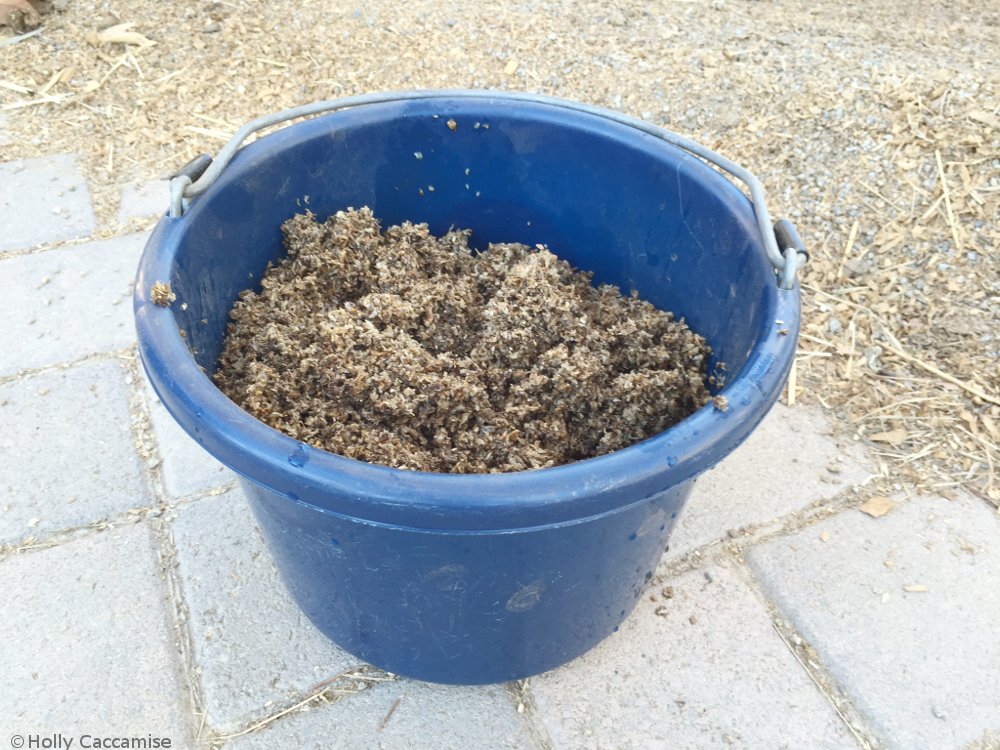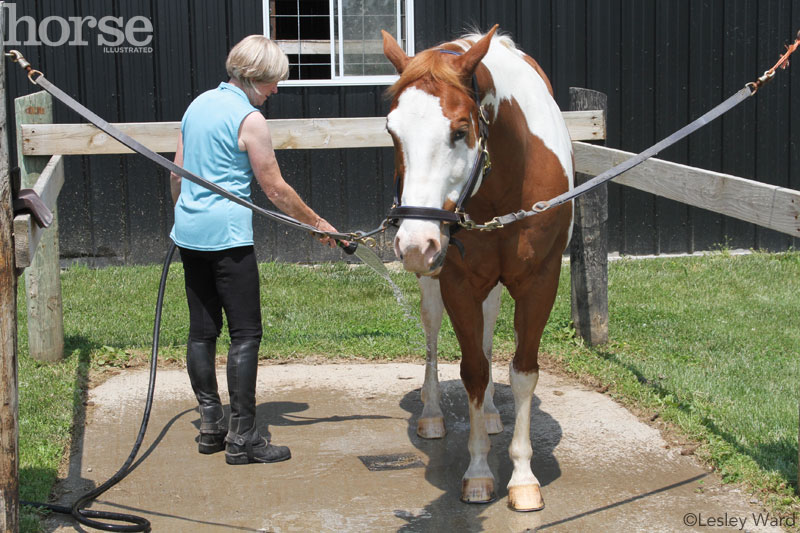
In the past, I’ve had the horses on a regular rotational deworming schedule recommended for the area where I live. I know that using the same dewormers over and over may result in worm resistance to the drugs, so I’d rather use drugs that are effective on my tiny herd’s specific worms.
 |
| From left to right: Gracie, the author, Jasper, Tee. Photo: Leslie Potter |
I’m the proud owner of Jasper, a slightly pudgy 15-year-old grade gelding; Gracie, an 8-year-old Thoroughbred-cross mare; and Tee, a 6-year-old Thoroughbred gelding. My horses live on my 12-acre farm near Lexington, Ky., and they have approximately six acres to graze on. They are easy keepers and spend most of their time outdoors. I try to remove piles of manure frequently, and I rake the pastures with a chain harrow when it’s hot.
Last fall when my horses were due for deworming, I collected manure from each of them in individually labeled plastic bags and took it to Rood and Riddle Equine Hospital where it was analyzed for worm eggs. What I found out was interesting. My three horses had very different worm counts, despite living in the same pasture and being dewormed at the same time.
Jasper’s worm burden was minimal. He had 25 eggs per gram (EPG) strongyles and 25 EPG parascarids. Gracie had 175 EPG strongyles and 50 EPG parascarids—levels which are in the “mild infestation” range. Tee had a significant egg count; 550 EPG strongyles and 25 EPG parascarids.
My veterinarian at Rood and Riddle, Woodrow Friend, DVM, wasn’t surprised by the results. “Every horse has a different resistance to worms,” explains Friend. “Eighty percent of worms are shed by 20 percent of horses, so Tee is a shedder.”
He wasn’t worried about Gracie and Jasper’s egg counts. “Low-grade egg counts are considered normal and not detrimental to a horse’s health,” says Friend.
He recommended that I deworm Tee with a broad-spectrum dewormer and have him re-tested four weeks later.
“You want a 95 percent decrease in eggs when you test him again,” Friend told me. “If his counts don’t go down, there may be parasite resistance to the deworming agent.”
I dewormed Tee later that day with an oral gel that contained moxidectin and praziquantel, which treats large and small strongyles, tapeworms, pinworms and ascarids. “Tee may have to be dewormed more frequently than your other two horses,” explained Friend.
He added, “You may find that a horse managed correctly on a nice pasture that is not grazing next to manure may only need deworming twice a year. A horse that’s living in a small pen with poor grazing will probably have more worms due to increased exposure to eggs, and may need to be dewormed more frequently.”
Friend also recommended that I deworm them at least once a year with a product that targets tapeworms because they don’t show up on fecal test results.
Four weeks later, I followed Tee around his pasture after his breakfast until he helpfully provided some manure for me to scoop up and take to the lab. This time his fecal test showed zero EPG. Deworming him had been successful.
As fecal tests are inexpensive, I plan to do them several times a year so I can target the specific types of worms my horses have and deworm them more effectively.
Further Reading
Fighting The Dewormer Resistance
This article originally appeared in the April 2010 issue of Horse Illustrated. Click here to subscribe.






Good information, to know and refer back to.